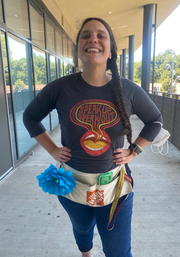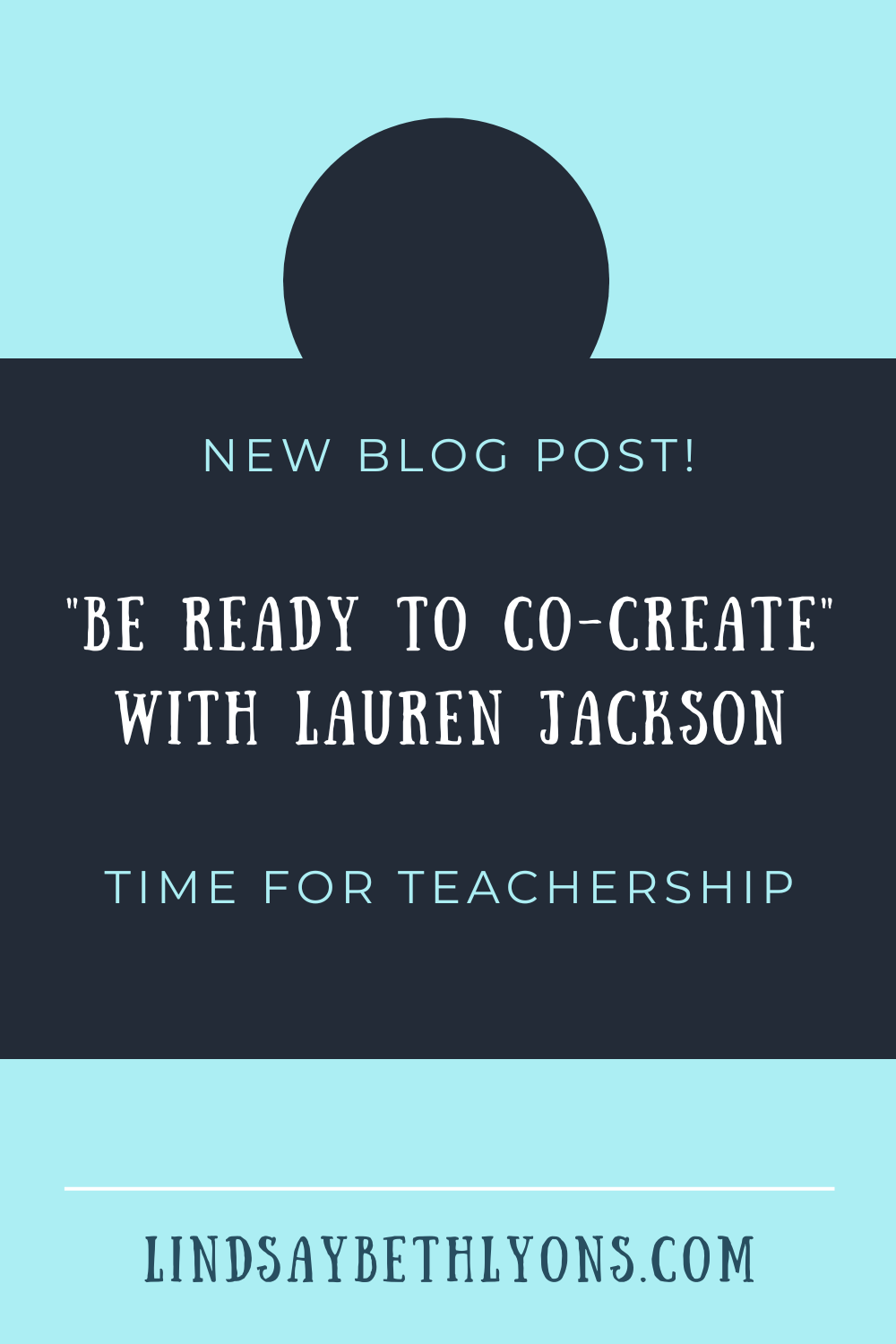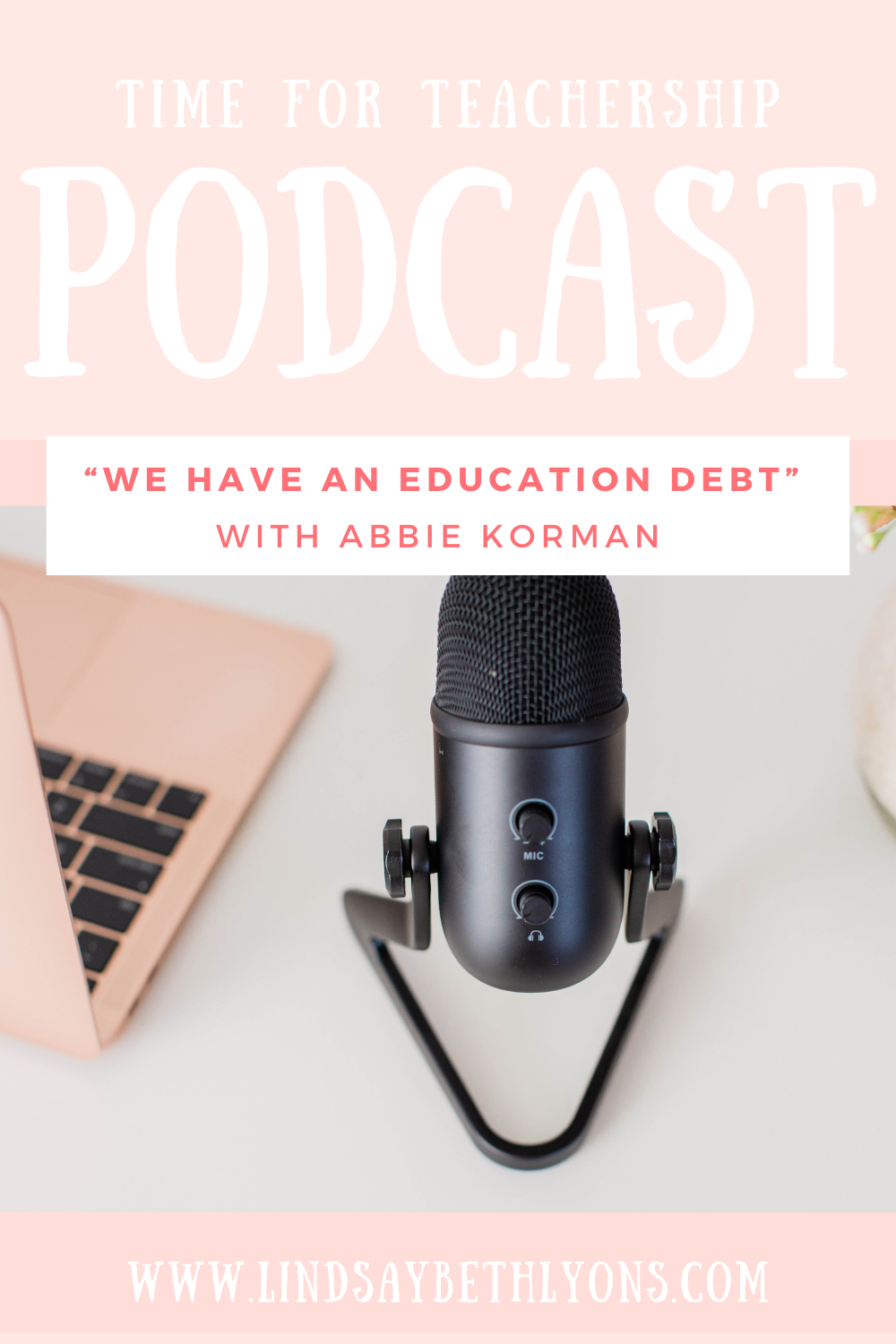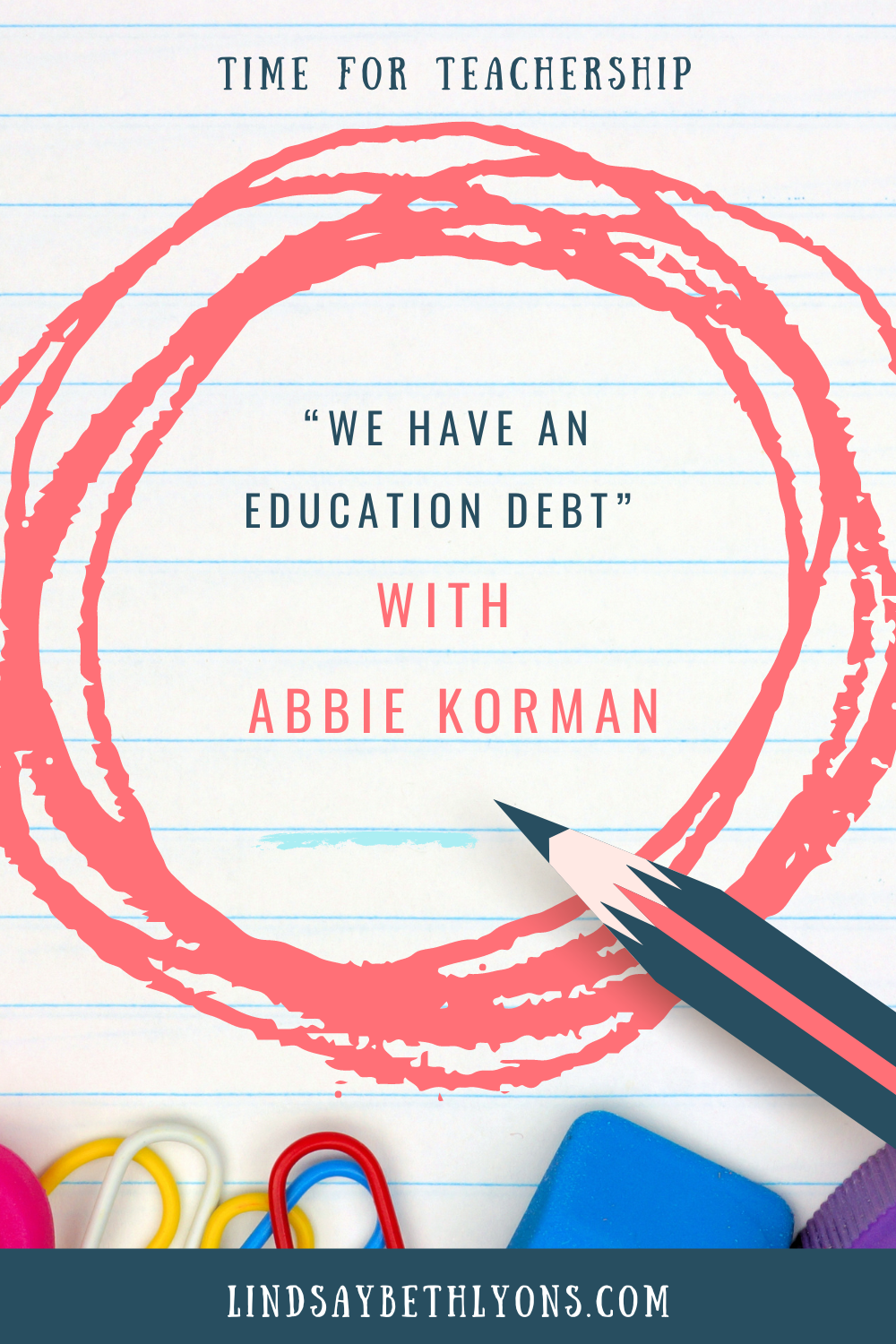 Listen to the episode by clicking the link to your preferred podcast platform below: There’s a saying that goes: “To make an omelette, you need to crack a few eggs.” Essentially, to do something good, you might have to break something. And that can be hard—even painful. But it’s a philosophy that Abbie Korman, guest on a recent episode of the Time for Teachership podcast, is passionate about. Abbie returned to her teaching profession during the pandemic after an 11-year hiatus. And she’s returned with a purpose: to become the best teacher she can be to her students while impacting structural change for the good. To reach this goal, Abbie has found a community of like-minded educators through Teachers for Good Trouble, who have a common interest in making an omelette (structural change) through their good trouble—advocacy efforts, professional development, and systemic transformation. Freedom Dreams: Goals for the Field of Education Abbie shared many “freedom dreams” she has for the field of education. Many of them relate to the systemic change that she desires to see. Instead of following the status quo, Abbie believes that many areas of education are broken and need a major overhaul. Together with her community and support system, Abbie identified just some of these goals that she’s fighting to change:
All these goals hinge on an important question: are we satisfied with the status quo or are we willing to take steps to change things for the better? Changing Personal and Structural Mindsets Looking at this list of freedom dreams might seem daunting, especially for teachers and educators who maybe haven’t thought through some of these areas yet. But change always starts with you. It starts with us. Each of us is responsible for our own mindset and growth. So, that’s why Abbie recommends starting with personal reflection. If there is something going on in your class, what can you do to change it? Where is your locus of control as a teacher? What responsibility do you have to make a difference? This kind of personal reflection is the start of any impactful mindset shift and action. From there, teachers need to tap into a mindset of larger structural changes. For example, Abbie talked about the fact that 80% of teachers are white women—why? It’s not because they make the best teachers, but because the current educational system is made for them. So to make it more inclusive and more diverse, massive structural changes need to take place. How to Take Brave Actions So how do we change things? There are many brave actions that teachers can take today. But to take brave action, it’s important to have a community of support around you. So as a step #1, Abbie recommends getting online and joining “teachergram,” or the teacher side of Instagram. This is a way to access free professional development and a community of like-minded educators. She recommends @teachersforgoodtrouble, @callmeshivy, @liberation.lab, and @kwame_the_identity_shaper as a place to start. From there, here are some brave actions that can make a big impact:
These brave actions might feel overwhelming to teachers who feel alone. But you’re not alone! As Abbie shared, there are so many teachers who are changing the field and making it a more inclusive and diverse space… you just need to find and connect with them! Let’s continue to be inspired by each other. That’s a big part of what Time for Teachership podcast is about! Make sure to listen to Abbie’s interview as well as other episodes of the podcast here.
0 Comments
Leave a Reply. |
Details
For transcripts of episodes (and the option to search for terms in transcripts), click here!
Time for Teachership is now a proud member of the...AuthorLindsay Lyons (she/her) is an educational justice coach who works with teachers and school leaders to inspire educational innovation for racial and gender justice, design curricula grounded in student voice, and build capacity for shared leadership. Lindsay taught in NYC public schools, holds a PhD in Leadership and Change, and is the founder of the educational blog and podcast, Time for Teachership. Archives
May 2024
Categories |




 RSS Feed
RSS Feed